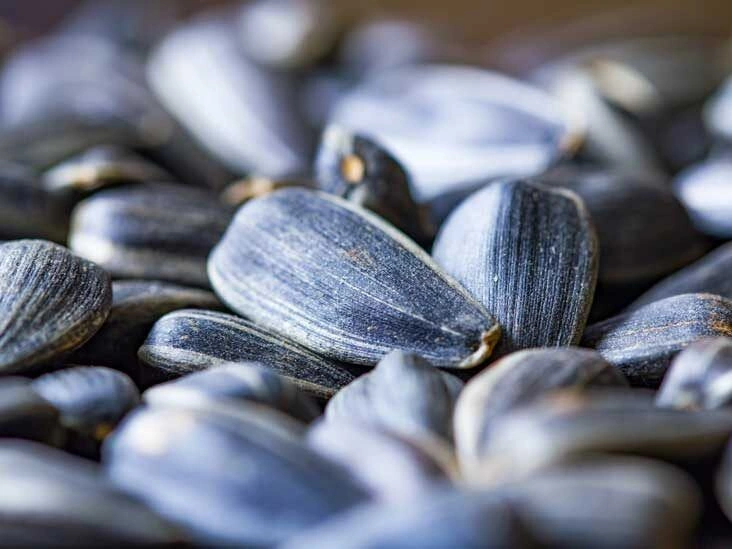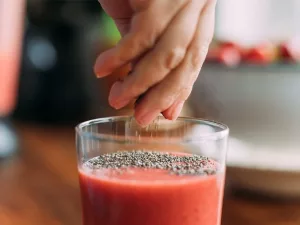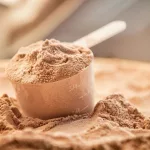Sunflower seeds contain heart-healthy fats, beneficial plant compounds, and a variety of vitamins and minerals that may help lower your risk of common conditions such as cardiovascular disease and type 2 diabetes.
They’re commonly found in trail mixes, multigrain breads, nutrition bars, and are frequently enjoyed straight from the bag as a snack.
Below is everything you need to know about sunflower seeds, including their nutrient profile, health advantages, and practical ways to consume them.

What are sunflower seeds?
Sunflower seeds are, botanically speaking, the fruit of the sunflower plant (Helianthus annuus).
The seeds come from the plant’s large flower heads, which can reach more than 12 inches (30.5 cm) across. A single head can contain as many as 2,000 seeds.
There are two primary varieties of sunflower plants. One variety is cultivated for edible seeds, while the other — more extensively farmed — is grown primarily for oil extraction.
The edible sunflower seeds are enclosed in inedible black-and-white striped shells, often called hulls. Varieties grown for oil extraction typically have solid black shells.
Sunflower seeds have a mild, nutty taste and a firm yet tender bite. They are often roasted to heighten their flavor, though raw versions are also available for purchase.
Nutritional value
Sunflower seeds deliver numerous nutrients in a small package.
The primary nutrients in 1 ounce (28.35 grams or 1/4 cup) of shelled, dry-roasted sunflower seeds include:
- Calories: 165
- Total fat: 14.1 grams
- Protein: 5.5 grams
- Carbohydrates: 6.8 grams
- Fiber: 3.2 grams
- Vitamin E: 49% of the DV
- Niacin: 13% of the DV
- Vitamin B6: 13% of the DV
- Folate: 17% of the DV
- Pantothenic acid: 40% of the DV
- Iron: 6% of the DV
- Magnesium: 9% of the DV
- Zinc: 14% of the DV
- Copper: 58% of the DV
- Manganese: 26% of the DV
- Selenium: 41% of the DV
Sunflower seeds are notably rich in vitamin E and selenium, which act as antioxidants protecting body cells from oxidative damage that contributes to chronic disease.
They also supply a range of phytochemicals, including phenolic acids and flavonoids, which similarly provide antioxidant benefits.
When sunflower seeds are sprouted, their nutritional profile improves. Sprouting also decreases compounds that can hinder mineral absorption. You can find sprouted, dried sunflower seeds online and in some retailers.
Health benefits
Sunflower seeds may assist in lowering blood pressure, cholesterol, and blood glucose because they supply vitamin E, magnesium, protein, linoleic fatty acids, and various plant compounds.
Research has connected sunflower seeds with several other health advantages.
Inflammation
While short-term inflammation is a normal immune mechanism, chronic inflammation is implicated in many long-term illnesses.
For instance, elevated blood concentrations of the inflammatory marker C-reactive protein are associated with an increased disease risk.
In an observational study of over 6,000 adults, those who reported eating sunflower and other seeds at least five times weekly had 32% lower C-reactive protein levels than participants who consumed no seeds.
Although observational studies cannot establish causality, vitamin E — highly concentrated in sunflower seeds — is known to help reduce C-reactive protein.
Additionally, polyphenols and other phytochemicals in sunflower seeds contribute to their anti-inflammatory effects.
Heart disease
High blood pressure is a significant risk factor for heart disease, which can result in heart attack or stroke.
Bioactive peptides present in sunflower seeds may help blood vessels relax by inhibiting an enzyme that causes vessel constriction, thereby lowering blood pressure. The magnesium they contain also supports healthy blood pressure levels.
Sunflower seeds are a good source of unsaturated fatty acids, particularly linoleic acid. The body converts linoleic acid into signaling molecules that relax blood vessels and help reduce blood pressure; this fatty acid also aids in lowering cholesterol.
In a clinical trial, women with type 2 diabetes who consumed 1 ounce (30 grams) of sunflower seeds daily as part of a balanced diet experienced a 5% reduction in systolic blood pressure.
Participants also observed 9% and 12% reductions in LDL (“bad”) cholesterol and triglycerides, respectively.
Moreover, a review of 13 studies found that people with the highest linoleic acid intake had a lower incidence of cardiovascular events and a 21% reduced risk of dying from heart disease compared with those consuming the least.
A 2020 study of 60 obese men reported that those who consumed bread made with sunflower seed flour experienced notable decreases in weight, BMI, total cholesterol, LDL cholesterol, and triglycerides after four months.
Diabetes
Research on sunflower seeds’ effects on blood glucose and type 2 diabetes is limited but encouraging; further studies are necessary.
Some studies suggest that people who eat 1 ounce (30 grams) of sunflower seeds daily as part of a wholesome diet may reduce fasting blood glucose by about 10% over six months compared with diet alone.
The glucose-lowering action of sunflower seeds may partly stem from plant compounds like chlorogenic acid.
Adding sunflower seeds to carbohydrate-rich foods, such as bread, may blunt the post-meal blood sugar rise. The seeds’ protein, fats, and fiber slow gastric emptying, producing a steadier release of glucose from carbohydrates.
Potential downsides
Despite their healthfulness, sunflower seeds have several potential drawbacks.
Calories and sodium
Although nutrient-dense, sunflower seeds are fairly calorie-rich.
Eating the seeds still in their hulls is an easy way to slow your eating pace and reduce calorie intake when snacking, since cracking each shell takes time.
If you’re limiting sodium, be aware that shells — which many people suck on before opening — are often salted.
Sodium content may not be obvious on labels that only list nutrition for the edible kernels. Some brands offer low-sodium versions.
Cadmium
Another reason to consume sunflower seeds in moderation is their cadmium content. This heavy metal can damage kidneys with high long-term exposure.
Sunflowers tend to absorb cadmium from soil and concentrate it in their seeds, so they contain moderately higher levels than many other foods.
The WHO recommends a weekly limit of 7 mcg per kg of body weight. For a 154-pound (70-kg) adult, that equates to 490 micrograms of cadmium per week.
In one study, people who consumed 9 ounces (255 grams) of sunflower seeds per week for a year saw an estimated rise in cadmium intake from their diet. However, this did not elevate blood cadmium levels or cause kidney damage.
Thus, you don’t need to worry about reasonable sunflower seed consumption — such as 1 ounce (30 grams) daily — but avoid eating very large quantities in a single day.
Sprouted seeds
Sprouting seeds has become more popular as a preparation method.
Occasionally, seeds can be contaminated with harmful bacteria like Salmonella, which can proliferate in the warm, moist sprouting environment.
This risk is particularly relevant for raw sprouted sunflower seeds, which may not be heated above 118°F (48°C).
Drying sprouted sunflower seeds at higher temperatures helps destroy dangerous bacteria. One study found that drying partially sprouted seeds at 122°F (50°C) and above was effective.
When bacterial contamination is identified in certain products, recalls may occur — as has happened with raw sprouted sunflower seeds. Never consume recalled items.
Fecal blockages
Eating a large amount of sunflower seeds in a short period has occasionally led to fecal impaction (stool blockages) in children and adults.
Consuming seeds still in the shell may raise this risk because you might accidentally ingest shell fragments, which are indigestible.
An impaction can prevent bowel movements and might require medical removal under general anesthesia.
In addition to constipation from the blockage, symptoms can include leaking liquid stool around the obstruction, abdominal pain, and nausea.
Allergies
Although sunflower seed allergies are uncommon, they do occur. Reactions can range from asthma and mouth swelling to itching, hay fever, skin rashes, vomiting, and anaphylaxis.
The allergens are various seed proteins. Ground or roasted seeds can be as allergenic as whole seeds.
Refined sunflower oil is much less likely to contain allergenic proteins, but in rare instances, highly sensitive individuals have reacted to it.
Occupational exposures — for example among sunflower farmers and bird breeders — increase the likelihood of sensitization to sunflower proteins.
At home, processing seeds can release proteins into the air, which can be inhaled. Young children may become sensitized through exposure to seed proteins via broken skin.
Some people also develop skin reactions from handling seed-containing products, such as dough when making yeast bread with sunflower seeds, leading to itchy, inflamed hands.
Tips for eating
Sunflower seeds are available either in-shell or as shelled kernels.
Seeds in the shell are typically eaten by cracking them with your teeth and spitting out the shell — which is not edible. These are a classic snack at baseball games and other outdoor events.
Shelled sunflower seeds are more versatile. Ways to use them include:
- Add to trail mix.
- Stir into homemade granola bars.
- Sprinkle on leafy green salads.
- Mix into hot or cold cereal.
- Top fruit or yogurt parfaits.
- Include in stir-fries.
- Fold into tuna or chicken salad.
- Sprinkle over sautéed vegetables.
- Add to veggie burger mixes.
- Use as a substitute for pine nuts in pesto.
- Top casseroles.
- Grind and use as a fish coating.
- Add to baked goods like breads and muffins.
- Dip apple or banana slices in sunflower seed butter.
Sunflower seeds can turn blue-green during baking due to a chemical reaction between chlorogenic acid and baking soda, though reducing baking soda can minimize this discoloration.
Because of their high fat content, sunflower seeds can go rancid. Store them in an airtight container in the refrigerator or freezer to prolong freshness.
The bottom line
Sunflower seeds offer a nutty, crunchy snack and a flavorful boost to many dishes.
They provide a range of nutrients and plant compounds that may help combat inflammation, support heart health, and aid in managing type 2 diabetes.
However, they are calorie-dense and can cause adverse effects if consumed in excess.

























Leave a Reply
You must be logged in to post a comment.